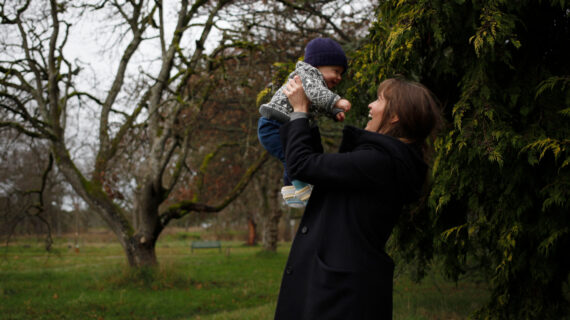- Affordability and public safety are expected to play a major role in determining who becomes Toronto's next mayor.
- Both issues are being felt by Canadians in cities across Canada, not just in Toronto.
- Conservative leader Pierre Poilievre has made affordability and public safety key issues for his party.
Residents of Canada’s largest city will pick a new mayor more than three years earlier than expected after John Tory’s shock resignation in February.
The race is wide open and public safety and housing affordability are considered to be major issues that will help to determine who wins the June byelection. Rising crime and unaffordability are not unique to Toronto, and are affecting other Canadian cities like Vancouver and Ottawa.
With both issues being increasingly debated at the federal level, can Toronto’s mayoral byelection provide a preview of how they may resonate with voters in future elections?
Mark Saunders, Toronto’s former chief of police, is running for mayor on a platform that, so far, has strongly emphasized public safety.
“Toronto is a world-class city and we can set an example of how to deal with this issue,” says Saunders in an exclusive interview with The Hub.
A number of repeat offenders are being blamed for much of the crime taking place across Canada, including one in Toronto who, while on probation for sexual assault, stabbed a 16-year-old to death on the TTC in March. Saunders points out there were 145 violent incidents on the TTC in December alone, while overall crime is up 18 percent in Toronto.
Saunders says a comprehensive plan to tackle the issue is needed at city hall, as well as cooperation with the federal government, whom Saunders says he has lobbied for bail reform.
“That means visibly increasing the number of TTC Special Constables [and] integrating those Special Constables with the Toronto Police Service,” says Saunders. “We also need to stop the insane and broken revolving door of repeat offenders.”
Regarding affordability, Eric Lombardi, a member of More Neighbours Toronto, a pro-housing group, says most of the current mayoral candidates have not yet put out a detailed housing platform. Since 2017, the asking price to rent an apartment in Toronto has jumped from an average asking price of $1,829 to $2,500 per month in 2023.
“The rising costs of rent and ownership for housing have been on an unsustainable path for years, with very little action in public policy from the city or provincial levels of government,” says Lombardi. “The interest rate path followed what was expected, and now, relative to interest rates, housing prices are worse despite the decline in prices overall.”
Ana Bailão, another mayoral candidate and a former deputy mayor, says Toronto needs to build 280,000 new units to accommodate the city’s population growth.
“What we need is to have different ways of growth in the city and there are parts of the city that can accommodate more density,” says Bailão in an exclusive Hub interview. “What needs to happen is we can’t have neighbourhoods going down in population like we have right now, and other ones growing by 30 and 40 percent.”
In 2022, the Toronto Star reported that while neighbourhoods like Yonge-Eglinton saw a population boom, Trinity-Bellwoods and Palmerston-Little Italy experienced a decline that will not be reversed without more affordable housing. The Canadian Press similarly reported last year that Canada could lose almost 25 percent of its new, university-educated immigrants due to a lack of affordability.
“The growth needs to be distributed, that will create better neighbourhoods, that will support our small business, that will make sure that people can live where they grew up,” says Bailão. “That will create a healthier city, socially and economically as well.”

Bailão says that, as mayor, she would not only make it possible to build condos but also forms of “gentle density” depending on different parts of the city.
“We need to have appropriate zoning and appropriate growth,” says Bailão.
Lombardi says that although public safety and affordability failures in Toronto reflect national trends, the former is a more prevalent issue in denser urban environments than in the suburbs due to the proximity and availability of social services in the cities.
Bailão, Saunders, and Lombardi all support greater investments in services for individuals who are suffering from mental health problems, which are often cited as a cause for random attacks breaking out in cities like Toronto and Edmonton.
“At the end of the day, we can’t just arrest our way out of this situation and need to treat the root causes of the problem,” says Saunders. “People who have a home don’t live on the subway. People fortunate enough to have good mental health don’t live on a streetcar or subway car.”
Nationally, Conservative leader Pierre Poilievre has hammered home the need to address violent crime and housing unaffordability. He has repeatedly attacked the federal government for what he says is inaction on both matters. That line of criticism is expected to continue through the next federal election.
In Chicago’s recent mayoral election, progressive candidate Brandon Johnson defeated Paul Vallas, who ran on a platform emphasizing the need to tackle the city’s pervasive violent crime. While noting Toronto and Chicago are very different cities, Lombardi says the importance of addressing issues like public safety and housing can be oversold during an election.
“At the end of the day, most voters make a decision about a person, not the specific points in a platform. Most voters trust people over ideas, and that makes a big difference,” says Lombardi.




